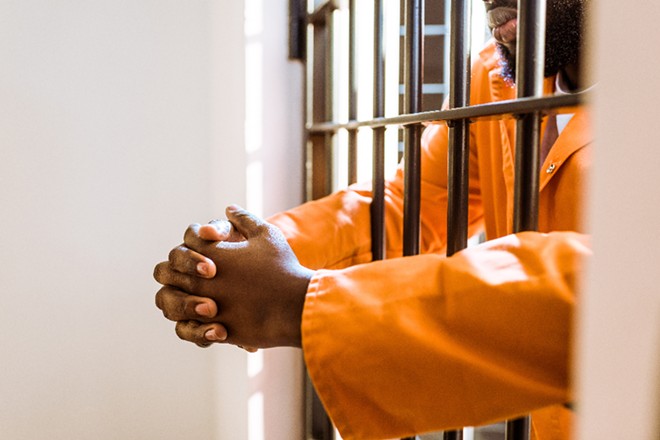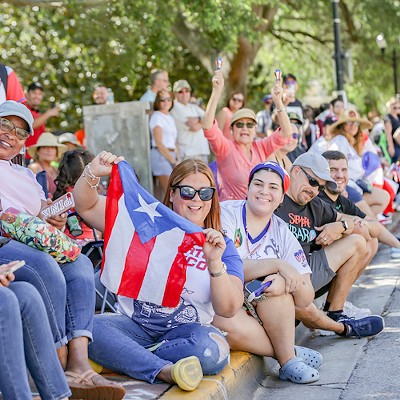Federal appeals court rules against man whose served 30 years in prison for a murder he says he didn't commit
By Jim Saunders, NSF on Tue, Mar 15, 2022 at 10:27 am
In a case that has drawn national attention, a federal appeals court Monday ruled against a man who served three decades in prison for a Brevard County murder that he said he didn’t commit.
A three-judge panel of the 11th U.S. Circuit Court of Appeals said a federal district judge in 2018 improperly overturned the conviction of Crosley Green. While the case was pending at the Atlanta-based appeals court, Green was released from prison in 2021.
Green was convicted in the April 1989 shooting death of 21-year-old Charles “Chip” Flynn, who was found with a gunshot wound to the chest in a citrus grove. Kim Hallock, who dated Flynn, said they were accosted by a man as they were parked in a secluded area of a park, robbed and driven to the citrus grove, where she fled, according to court documents.
A jury convicted Green of first-degree murder in 1990, and he was sentenced to death, though he was resentenced to life in prison in 2009.
In the 2018 decision, U.S. District Judge Roy Dalton Jr. granted what is known as a “writ of habeas corpus” that could lead to Green receiving a new trial or being freed. Dalton ruled that prosecutors had improperly withheld evidence about police officers suspecting Hallock in the shooting, according to court documents.
The Florida attorney general’s office appealed Dalton’s ruling. In a voluminous 159-page main opinion Monday, the appeals court said Dalton had improperly ruled because the issues about withheld evidence had not been “exhausted” during appeals in state courts.
“The power of the federal courts to grant a writ of habeas corpus setting aside a state prisoner’s conviction on a claim that his conviction was obtained in violation of the United States Constitution is strictly circumscribed,” said the main opinion, written by Judge Gerald Tjoflat and joined by Judge William Traxler Jr. “First, the prisoner must have exhausted his state remedies. He presented the claim to the state courts, and they denied it on the merits.”
Judge Adalberto Jordan disagreed with the main opinion’s conclusion that Green had not exhausted the issues in state courts. But Jordan nevertheless wrote that he did not think Green was entitled to relief on the issue of withheld evidence, which involved a prosecutor’s notes about the suspicions of the police officers.
In his 2018 ruling, however, Dalton found the withheld evidence significant.
“It is difficult to conceive of information more material to the defense and the development of defense strategy than the fact that the initial responding officers evaluated the totality of the evidence as suggesting that the investigation should be directed toward someone other than petitioner (Green),” Dalton wrote. “Thus, the withheld evidence was clearly material and the failure to disclose it was a … violation which undermines confidence in the outcome of the trial.”
–
Stay on top of Central Florida news and views with our weekly newsletters, and consider supporting this free publication. Our small but mighty team is working tirelessly to bring you Central Florida news, and every little bit helps.
Tags:

WE LOVE OUR READERS!
Since 1990, Orlando Weekly has served as the free, independent voice of Orlando, and we want to keep it that way.
Becoming an Orlando Weekly Supporter for as little as $5 a month allows us to continue offering readers access to our coverage of local news, food, nightlife, events, and culture with no paywalls.
Scroll to read more Orlando Area News articles
Newsletters
Join Orlando Weekly Newsletters
Subscribe now to get the latest news delivered right to your inbox.


















